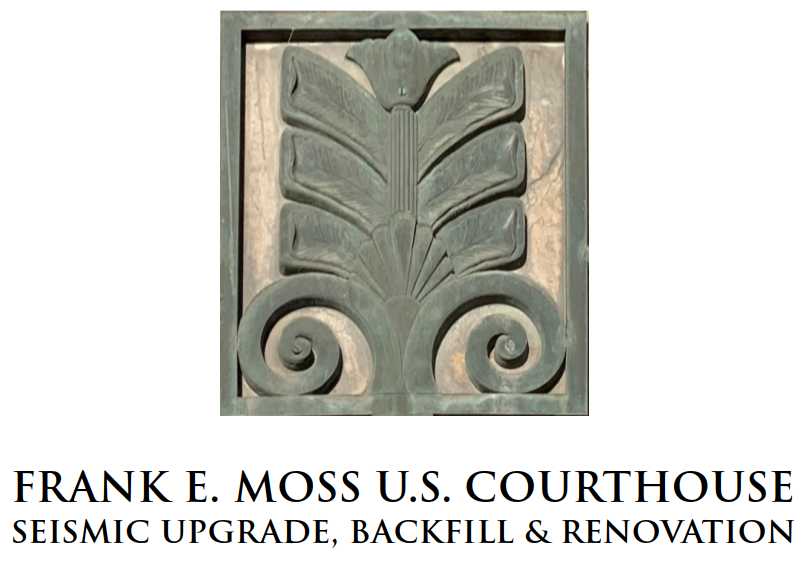Postal Collection Time Signs
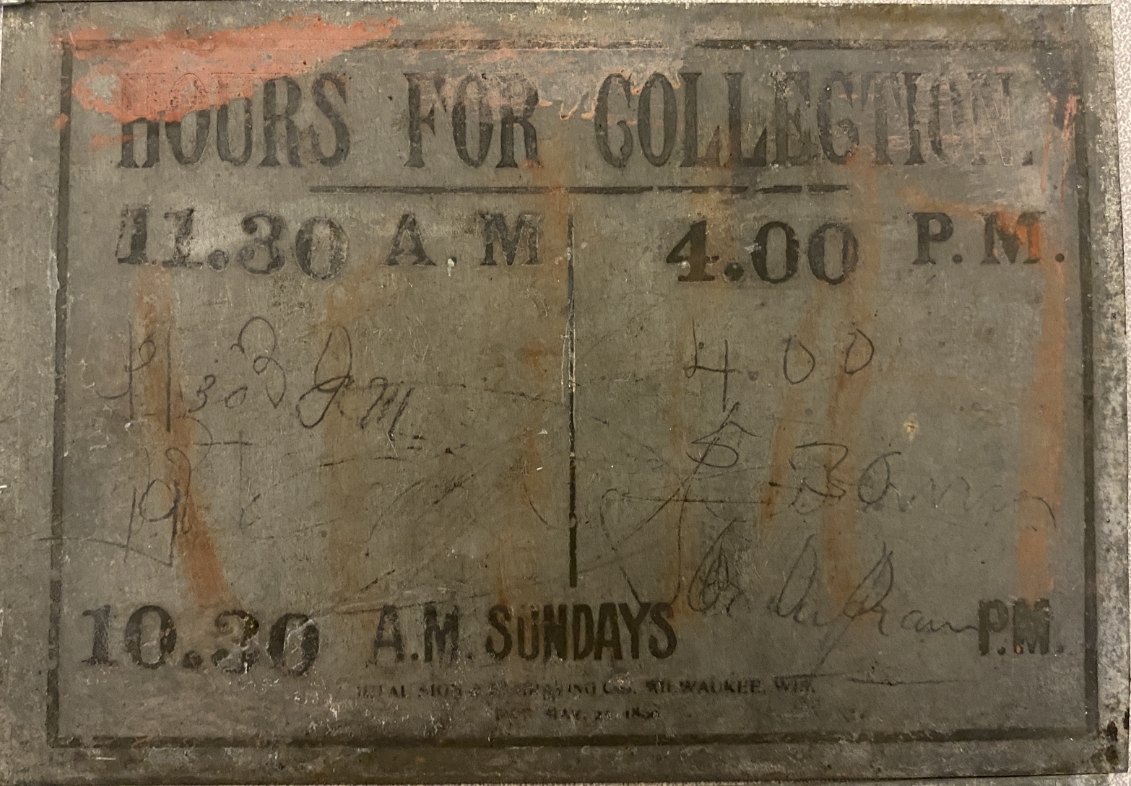
Engraved Postal Signs
Dozens of “Hours for Collection” plaques were located in the basement of the Moss Courthouse. Discovered within a wall opening behind the basement incinerator, these plaques represent several decades of postal history.
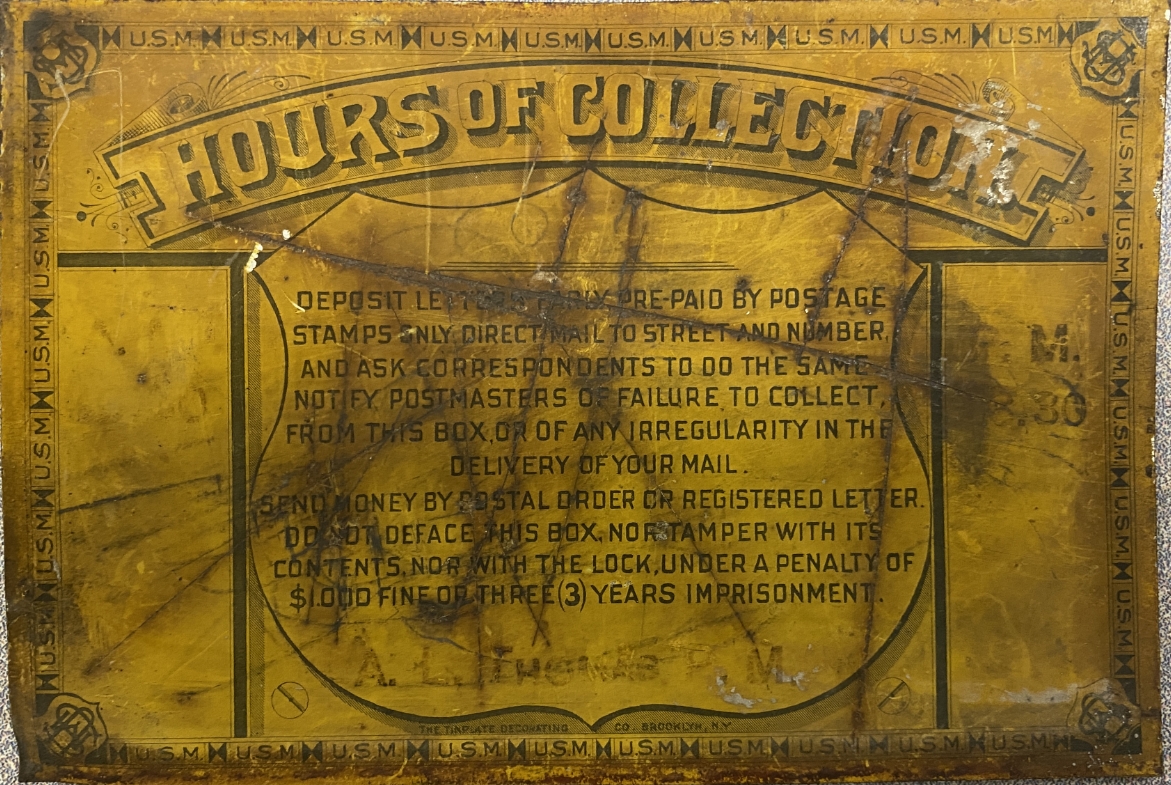
Collection Hours Sign – PM Thomas
The oldest of these thin metal signs is a yellowed Hours of Collection sign indicating A.L. Thomas as the postmaster. Arthur Lloyd Thomas was Postmaster in Salt Lake City between 1898-1914. He would have been the first postmaster stationed at the Moss Courthouse.
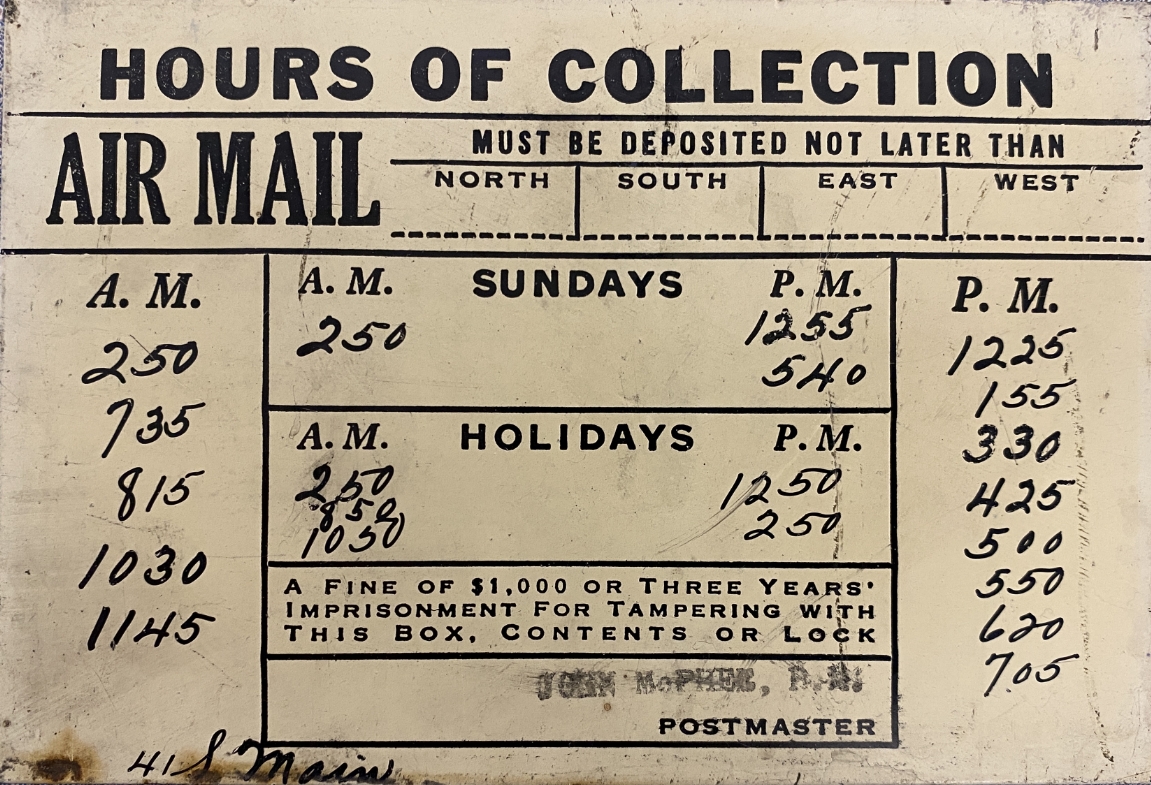
Enamel postal sign
John McPhee was Postmaster in Salt Lake City from 1928-1933. The white enamel “Hours of Collection” plaques indicate Mr. McPhee, placing their time of creation and display within those years. Each thin metal sign includes handwritten hours of collection as well as the postal box location, typically located in the bottom left corner.
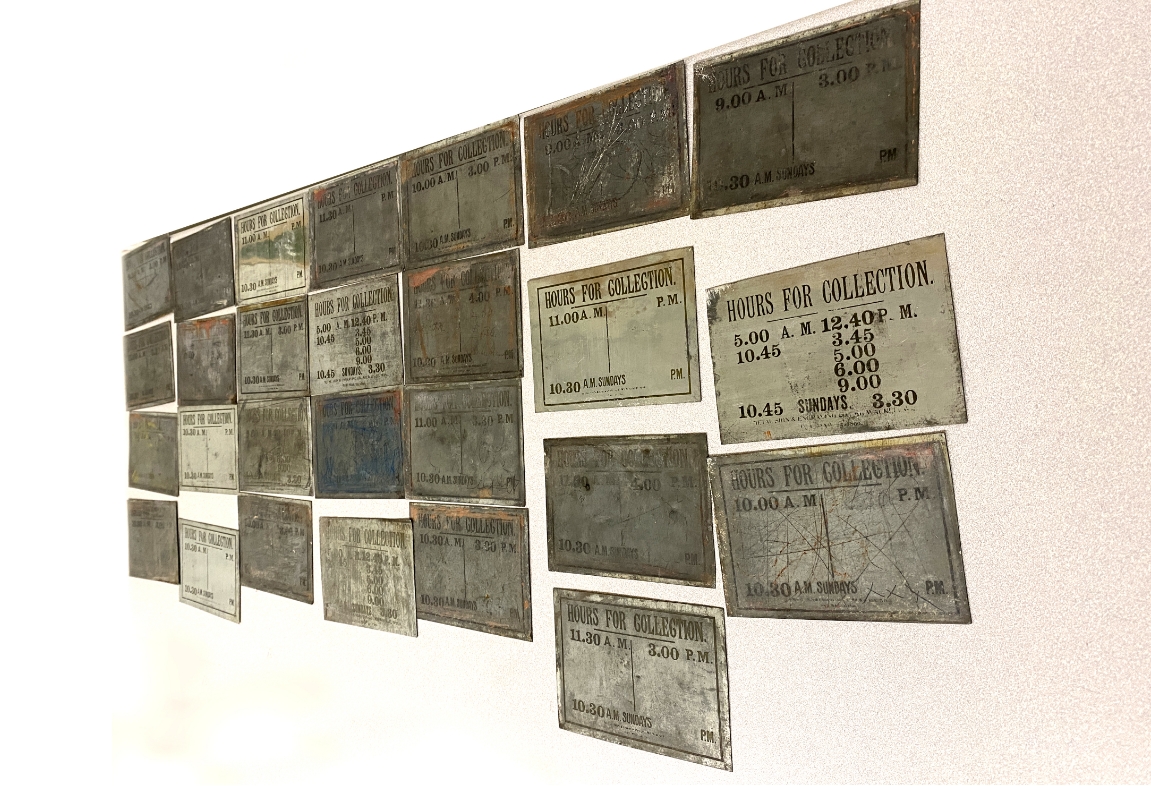
Engraved postal sign
Over 25 “Hours of Collection” metal signs include engraved postal collection times. These were manufactured by Metal Sign & Engraving Co., Milwaukee Wisconsin. These plaques do not include locations nor indicate the Postmaster, making it difficult to determine their age.
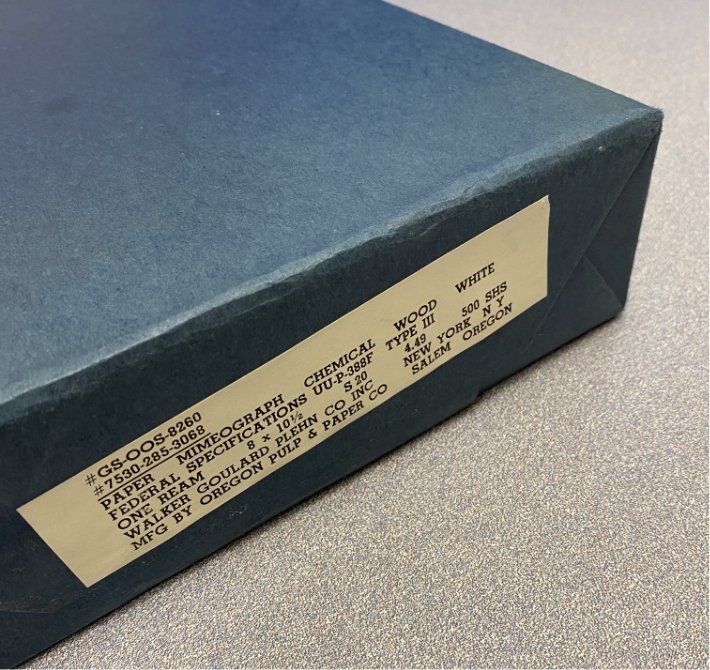
Mimeograph Paper
Mimeographs were stencil duplicating machines that were common in office settings until the 1960s. This ream of paper was manufactured by Oregon Pulp and Paper Co. in Salem, Oregon and brokered by Walker Goulard Plehn Co. This 8” x 10 ½” paper was manufactured to meet federal specifications. It is pre-1960’s, as Oregon P&P was closed during that decade.
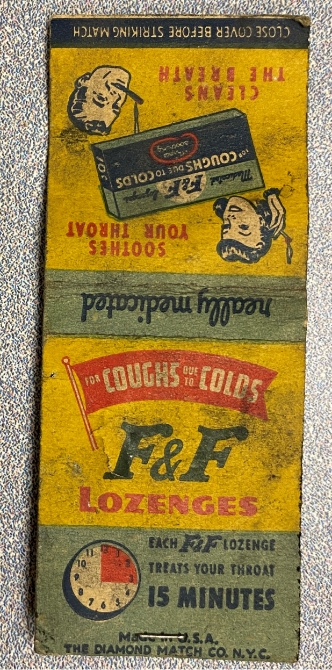
Matchbook
Historically matchbooks were powerful advertising tools since smoking was common until the recent past. This matchbook, advertising F&F Lozenges, was located in level 1 of the Moss Courthouse. F&F Lozenges began being manufactured in 1933 and were common in the 1940’s. It is interesting that the cover depicts people smoking cigarettes and advertising that it “Soothes your throat” and “cleans the breath”.
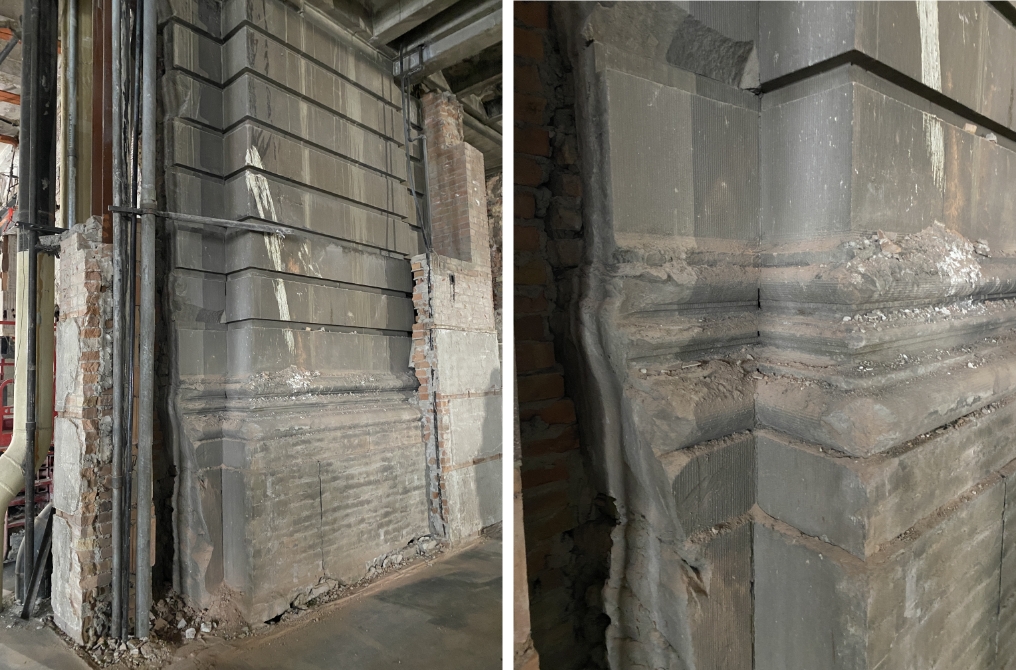
1905 Exterior Facade
During demolition of Level 1, we uncovered a section of the original exterior facade of the building. This south side was covered over during the expansion in 1932. The builders simply added brick over the original sandstone to create the new interior. The corner is very well preserved, showing the carved base profiles and stone banding. We look for opportunities to showcase this historic section in the new construction.
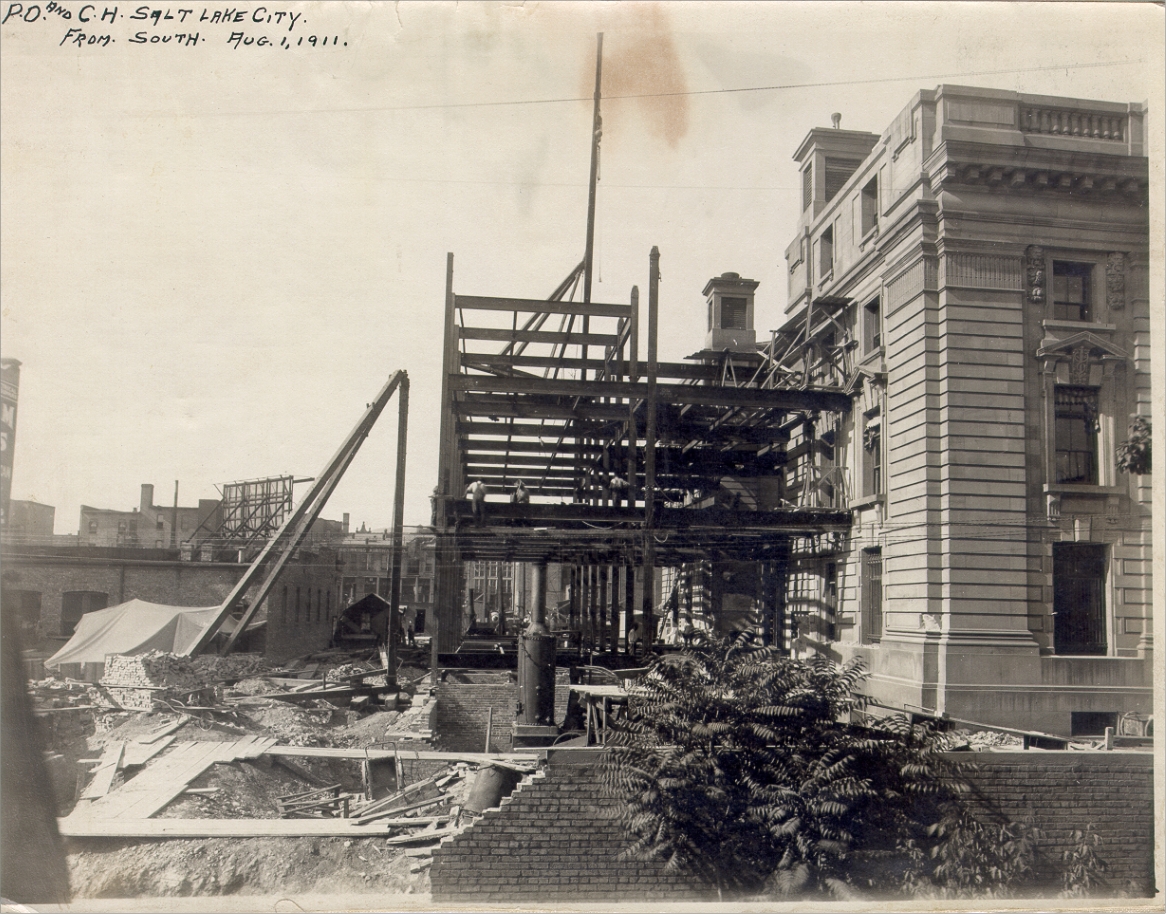
This historic photo depicts this same corner during the 1912 expansion to the west.
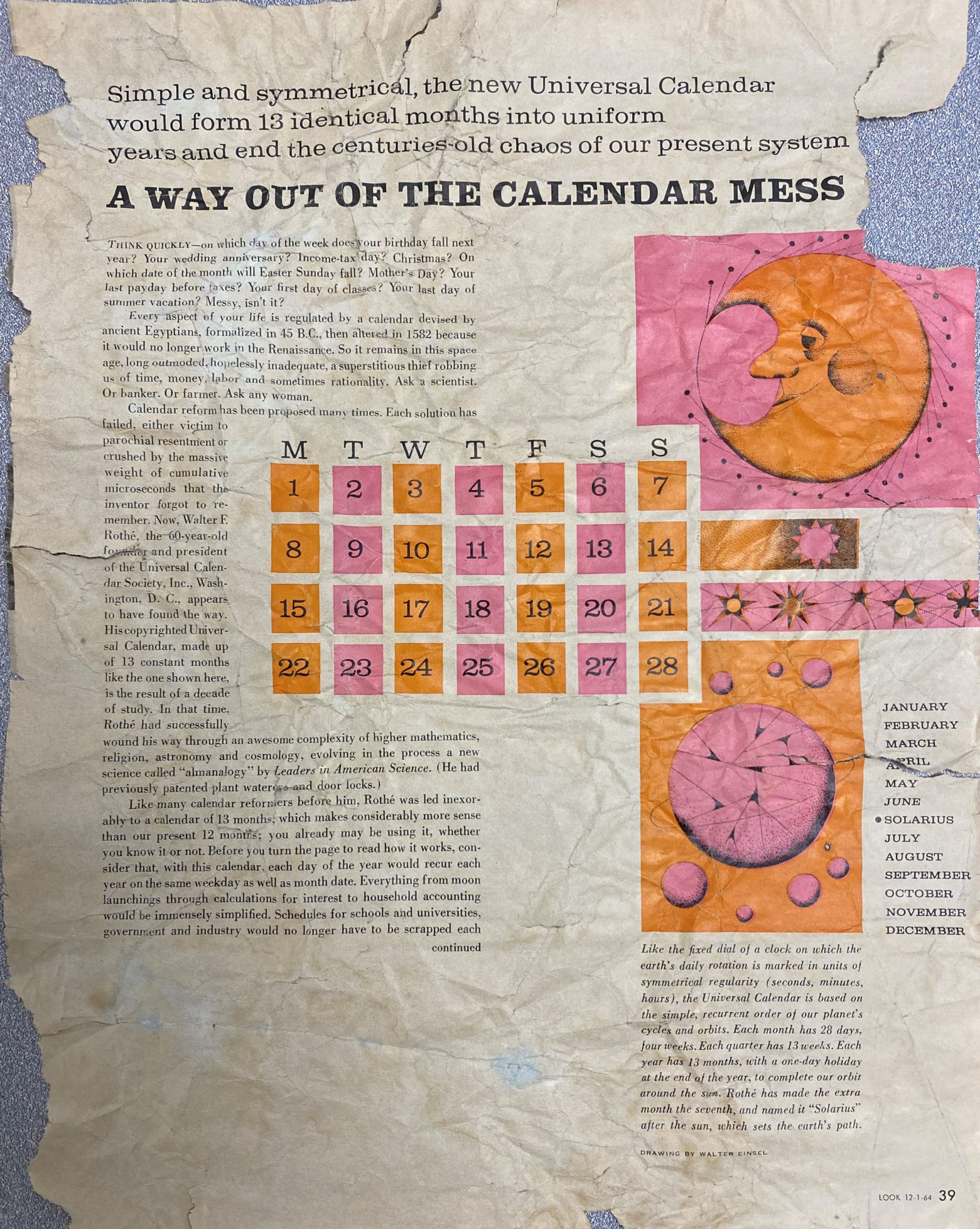
Look Magazine Page
Single page from Look Magazine publication dated 12-1-64. Page 39 is an article “A Way Out of the Calendar Mess” advocating for the implementation of a 13 month universal calendar. Page 40 is an ad for Toastmaster, showcasing multiple products, including a 4 slice toaster, a hair dryer bonnet and a smokeless broiler-rotisserie.
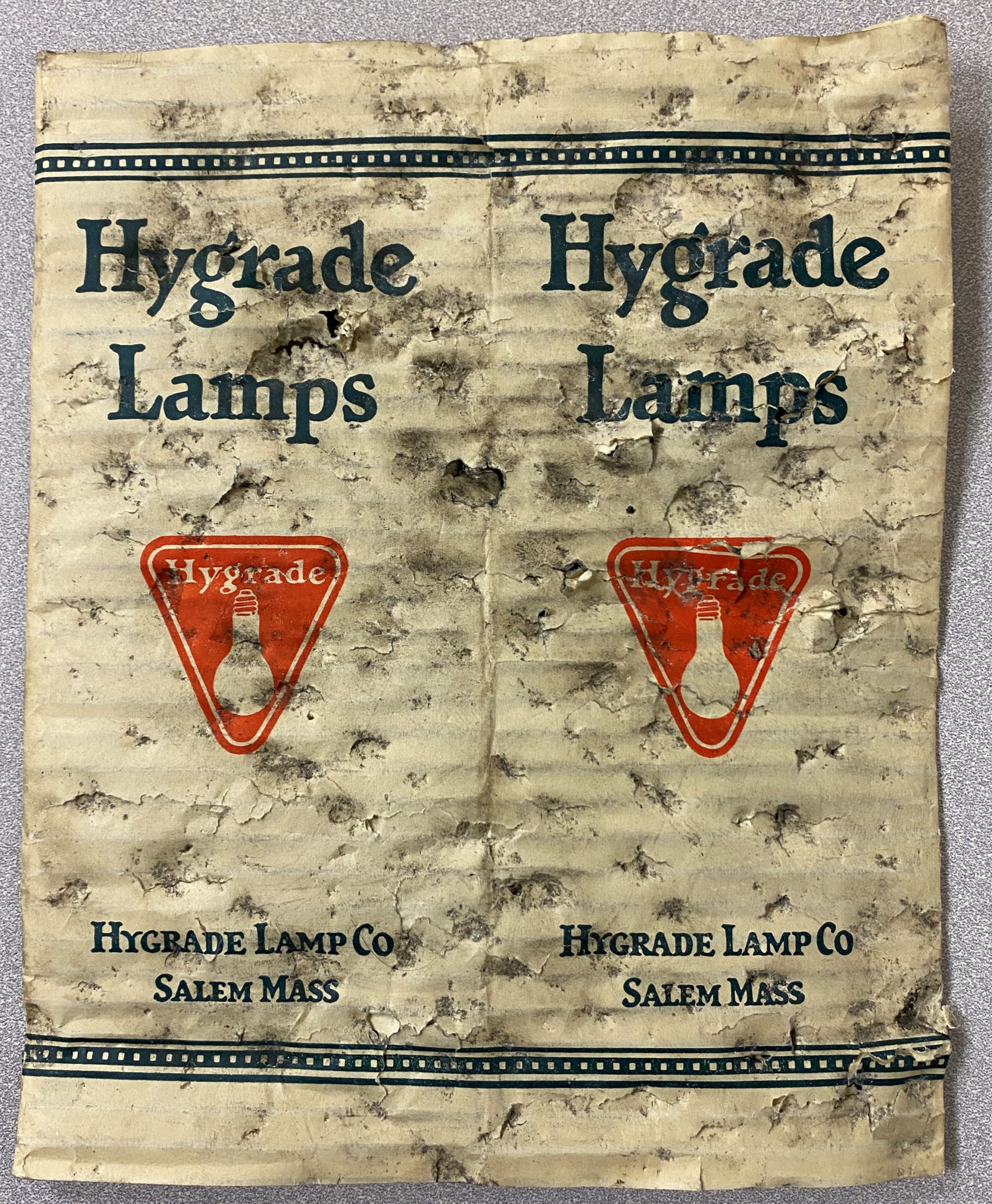
Hygrade Lamp Box
This Hygrade Lamp box was found on the floor post demolition of the 4th floor west side. Hygrade Incandescent Lamp Co. was in existence from 1909-1931, and patents listed on the package date as late as 1928. In 1931, Hygrade merged with Sylvania Corp, but Hygrade was still utilized on packaging up until 1942.
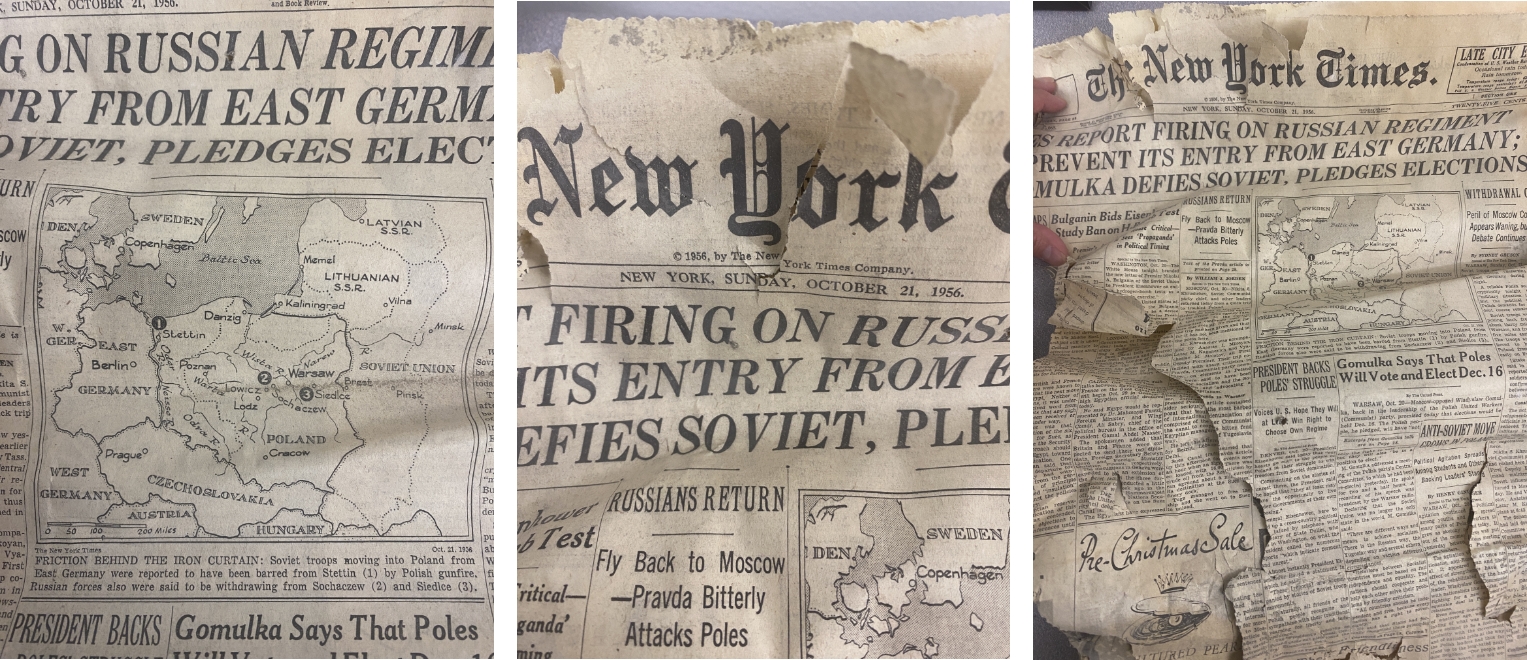
New York Times Newspaper
This mostly intact copy of the New York Times was discovered within the elevator shaft. Dated October 21, 1956, it headlines friction between Russia and Poland. The paper also includes articles regarding the growth of an Anti-Soviet movement in Poland, support by President Eisenhower for the Polish struggle for freedom from Soviet domination, and the prospect of elections in Poland.
